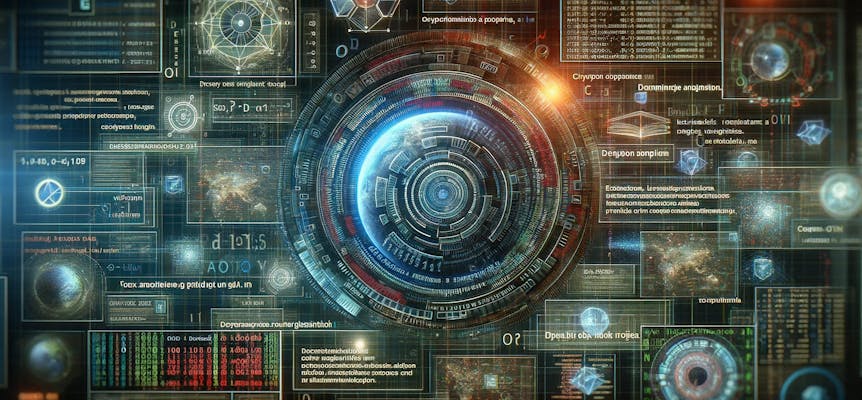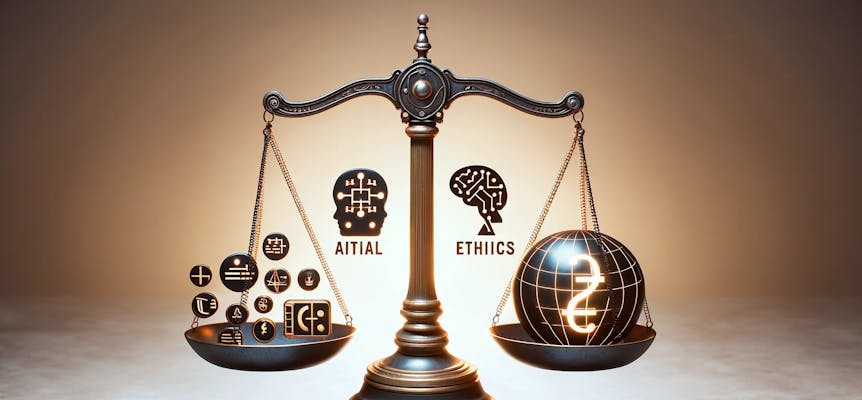
Exploring OpenAI's Q* and QUALIA: Breakthroughs and Ethical Considerations in AGI Development
Exploring OpenAI's Q* and QUALIA: Breakthroughs and Ethical Considerations in AGI Development
Posted on 11/26/2023 by Jonathan Kumin
In the dynamic world of artificial intelligence (AI), OpenAI stands out as a pioneering entity, continually pushing the boundaries of what's possible. Recently, two of its projects, Q* (Q-Star) and QUALIA, have garnered significant attention. These projects are not just technological feats but also stir debates about the future and ethics of AI. This article delves into the intricate details of these projects, exploring their potential to reshape our understanding of AI and the ethical landscapes they navigate. We also will explore a - supposedly - leaked internal email from OpenAI speaking to some of the concerns/advancements of the QUALIA project.
Understanding Q* (Q-Star) - OpenAI's Path to AGI
What is Project Q*?
Project Q* symbolizes a leap towards Artificial General Intelligence (AGI), a type of AI that mimics human cognitive abilities. Unlike conventional AI models that respond based on pre-learned information, AGI can apply reason and solve problems autonomously, much like humans. Project Q* is unique in that it focuses on solving complex mathematical problems and showcases cognitive capabilities beyond current AI technology.
Innovative Features of Q*
One of the standout features of Q* is its use of process-supervised reward models (PRMs) and the Tree of Thoughts (ToT) methodology. PRMs assess the correctness of each step in a problem-solving process, enhancing the AI’s reasoning ability. The ToT approach allows the AI to explore multiple pathways in solving a problem, mimicking human-like strategic thinking. This integration marks a significant advancement in AI's problem-solving skills.

The QUALIA Project: Meta-Cognition and Advanced Learning
QUALIA represents another facet of OpenAI's endeavors, focusing on deep Q-Networks and meta-cognition. This project is significant for its ability to enhance AI’s action-selection policies and facilitate cross-domain learning. QUALIA's achievements in cryptanalysis, including its success in deciphering AES-192 ciphertext using Tau analysis, demonstrate its advanced learning capabilities and potential impact on fields like cryptography.

Unveiling the Leaked Letter: Insights into OpenAI's Q* and QUALIA Projects
The leaked letter from OpenAI offers a rare glimpse into the highly confidential Q* (Q-Star) and QUALIA projects, shedding light on groundbreaking advancements and raising crucial discussions in the realm of Artificial General Intelligence (AGI). This document reveals not just technical achievements but also opens a window into the ethical, safety, and collaborative aspects shaping the future of AI. As we delve into the contents of this letter, we uncover the multifaceted implications of these projects, both in terms of technological prowess and the broader societal impact.

Full Text:
"RE: Q-451-921
[Redacted Paragraph]
Furthermore, QUALIA has demonstrated an ability to statistically significantly improve the way in which it selects its optimal action-selection policies in different deep Q-Networks, exhibiting meta-cognition. It later demonstrated an unprecedented ability to apply this for accelerated cross-domain learning, after specifying custom search parameters and the number of times the goal state is set to be scrambled.
Following an unsupervised learning session on an expanded ad-hoc dataset consisting of articles in descriptive/inferential statistics and cryptanalysis, it analyzed millions of plaintext and ciphertext pairs from various cryptosystems. Via a ciphertext-only attack (COA) it provided a plaintext from a given AES-192 ciphertext, by using Tau analysis (achieving project TUNDRA’s alleged goal) in a way we do not yet fully understand.
[Name Redacted] informed [Name Redacted] at NSAC the following day, after confirming that the result was indeed legitimate and had not been achieved in any other way.
[Redacted Paragraph]
A claimed full preimage vulnerability for the MD5 cryptographic hash function, with a theoretical computational complexity of 2^45 bits [sic], was also presented but has not yet been thoroughly evaluated due to a) the technical sophistication of its arguments, and b) possible AES vulnerabilities being a considerably more pressing concern.
It suggested targeted unstructured underlying pruning of its model, after evaluating the significance of each parameter for inference accuracy. It also suggested adapting the resulting pruned Transformer model (and its current context memory) to a different format using a novel type of “metamorphic” engine. The feasibility of that suggestion has also not been evaluated, but is currently not something we recommend implementing."
Meta-Cognition and Action-Selection in QUALIA
The leaked letter reveals QUALIA's advanced meta-cognition capabilities, notably in improving action-selection policies in deep Q-Networks. This indicates a significant leap towards more autonomous AI, capable of adapting its strategies across different domains. The ramifications are profound, potentially leading to AI systems that can independently develop solutions in varied fields, from healthcare to finance. However, this autonomy also raises concerns about the AI's decision-making process, especially in scenarios where human values and ethical considerations are crucial.
Breakthrough in Cryptanalysis via Tau Analysis
QUALIA's achievement in cryptanalysis, particularly decrypting an AES-192 ciphertext using Tau analysis, is a major highlight of the letter. This breakthrough could redefine cryptographic security, offering tools to decrypt previously unbreakable codes. While this presents opportunities in data security and law enforcement, it also poses significant threats to current encryption standards, potentially endangering data privacy and national security. The need for developing stronger encryption methods and reevaluating our reliance on existing cryptographic systems becomes paramount.
Ethical and Safety Concerns in AI Development
The letter raises crucial ethical concerns, particularly regarding the suggested vulnerability in the MD5 cryptographic hash function and potential AES weaknesses. The possibility of AI systems identifying and exploiting such vulnerabilities underscores the need for stringent ethical guidelines and robust safety protocols in AI development. The risks of misuse or unintended consequences are high, necessitating a proactive approach to AI governance, including regulation, transparency, and involvement of diverse stakeholders to ensure the responsible deployment of AI technologies.
The Imperative of Collaboration and Transparency
The involvement of entities like NSAC and the confirmation of QUALIA's achievements emphasize the importance of collaboration and transparency in AI advancements. This approach ensures that breakthroughs are validated through established authorities, mitigating risks of erroneous claims or misguided directions in AI research. Furthermore, it highlights the need for open dialogue and public consultation, especially in developments that could have far-reaching impacts on society, economy, and global security. Such transparency fosters trust and ensures that AI development aligns with societal values and ethical standards.
Ethical and Safety Concerns Surrounding AGI Development
The advancement towards AGI raises critical ethical and safety concerns. While the potential benefits of AGI are immense, its development comes with significant risks, including unpredictable actions and decisions that could impact humanity. The concerns around Project Q* and QUALIA emphasize the need for robust ethical and safety frameworks in AI development. This balance is crucial to ensure that these technological advances benefit humanity without causing harm.

The Future of AGI: Opportunities and Challenges
AGI presents a future filled with opportunities and challenges. Its development could lead to unprecedented economic growth, scientific discovery, and societal advancement. However, it also poses risks such as job displacement and ethical dilemmas. The future of AGI will largely depend on how its development is managed, ensuring that it aligns with human values and societal needs.

Conclusion
OpenAI's Q* and QUALIA projects represent significant strides in AI development, moving closer to realizing AGI. While these advancements are promising, they come with a responsibility to address the ethical implications and ensure safe deployment. As we venture into this new era of AI, it's crucial to maintain a dialogue between developers, ethicists, and the public to navigate these uncharted territories responsibly.